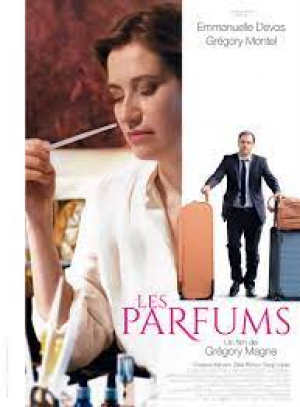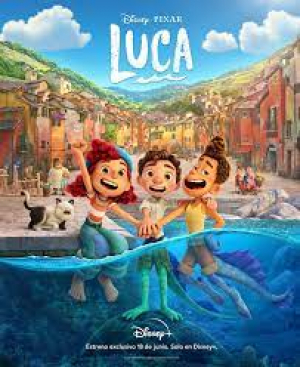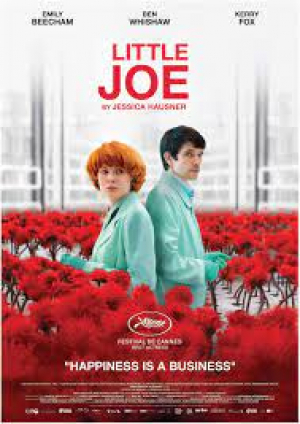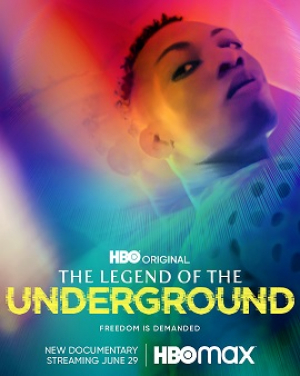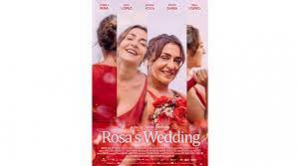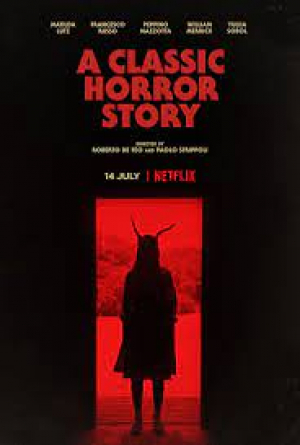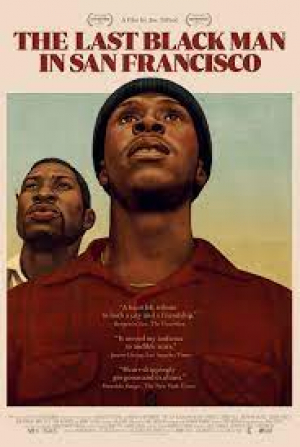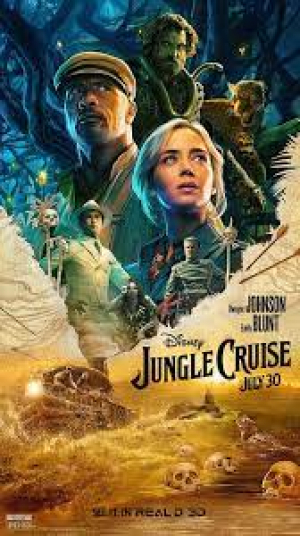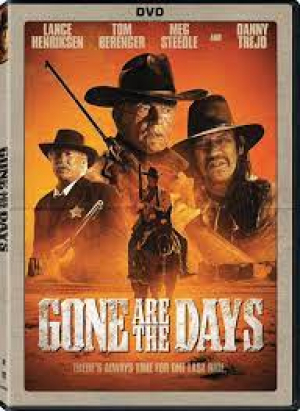Peter MALONE
Chevalier Family First Friday? As we end 2021, what are our goals? Dialogue for our whole society.
Chevalier Family First Friday? As we end 2021, what are our goals? Dialogue for our whole society.

And the Chevalier Family Justice Poster for November.

Perfumes/ Parfums
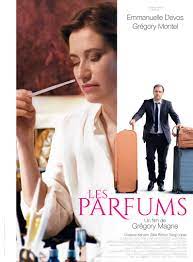
PERFUMES/ PARFUMS
France, 2019, 100 minutes, Colour.
Emmanuelle Devos, Gregory Montel, Zelie Rixhon, Sergi Lopez, Gustave Kervern, Pauline Moulene
Directed by Gregory Magne.
An alternate title might have been Driving Madamoiselle Walberg. Madamoiselle Walberg is a demanding woman (rather an imperious lady) and Guillaume is her chauffeur. And, yes, there are plenty of perfumes throughout the film – unfortunately a film able to give only verbal descriptions rather than the audience smelling the real scents (which are often quite exotic)!
Veteran actress, Emmanuelle Devos, is a compelling Madamioselle. Gregory Montel is believable as her chauffeur.
It can be said that this is a film which you could take anyone to see – not something that you can say about a lot of films these days. But, Perfumes is interesting, entertaining, often moving.
We actually meet Guillaume first, suspicious of him, a touch abrasive, separated from his wife, going to meetings with a judge to discuss week by week custody of his daughter, living in a small apartment (which the judge tells him is too small for his daughter’s privacy), scouting out better accommodation, and depending, especially for income, on his job as a chauffeur.
It is through Guillaume that we are introduced to Madamoiselle Walberg - eventually revealing herself as Anne. She is older. She is haughty. She is not a please and thank you person. And, if there is a word beyond fastidious, it would apply to her. She is highly sensitive to scents and perfumes. With such treatment, Guillaume is not an enthusiastic chauffeur – but she keeps asking for him.
The action of the film consists of ups and downs.
Ups include Guillaume discovering that Anne is a Nose (not on the nose but rather, an ability to differentiate an enormous range of scents and perfumes and to remember their origins). We see her in action, advising a company of handbag makers whose leather has something of an offputting odour, surveying a factory which emits smoke and rotten smells. Anne has solutions – get Guillaume to take notes, ask his opinion. He, in the meantime, urges her to become more sociable, even polite.
Downs include Anne losing her abilities, time in hospital, greater awareness of her loneliness. Guillaume’s downs include losing points with his employer and therefore losing his license, explaining to his daughter on her 10th birthday that they will have to wait for the new apartment.
The film is upbeat at the end, Anne insisting that Guillaume work with her – and, delightfully, Guillaume going to one of those classes where the child gets a parent to explain their job. We leave Guillaume explaining to the rapt class, scents, combinations for perfumes.
While the film has strong-minded sentiment but never cloying, it can be described pleasingly as “nice”.
- The title? The focus? Gifted creators, the talent of smell, sent, Noses?
- French sensibility? Characters, behaviour, relationships?
- The title, And and her career, her reputation, her history, the achievement, her talent, sensitivities, memories, her catalogue of perfume is?
- The introduction to Guillaume, with his daughter, the candy bar, the deception, Finance? Separated, the outing with his daughter? The sequence with the lawyers, the documents, the opinion of the judge, his wanting alternate week custody, the intention of buying a flat, the need for his job? Driver, his years, friendship with A scene? The visit to the apartment, plans for a bigger room for his daughter?
- The commission to drive miss well Burke? The first encounter, her haughty manner, commands, no please or thank you, carrying the cases, putting them in the car, continually giving him orders, the cigarettes and throwing them away, his retrieving them? Going to the interviews, ordering him to take notes? Hotels, getting him to change the sheets? Her allergies and discomfort? His reaction?
- Her continued asking for him, his reluctance, the various jobs, his own opinions, sense of smell, her asking him questions? The handbags, the discussion about the scent, seven days, his doubling the price? The later visit to the factory, out in the air?
- And, her lonely life, her past career with the Americans, loss of the sense of smell, being fired, bad reputation? Gene is her friend, agent, getting her the job is, the arguments? The invitation to the party, her taking Guillaume, his being comfortable at the party?
- And, reinforced in her loneliness, at the restaurants, the not noticing the waitress, Guillaume rebuking her, forcing her to make comment? The sound of the bar, going down, drinking, the next morning and the hangover?
- Guillaume, the outing with his daughter, taking her to the beach, raining, the play on the beach, her memories? Her 10th birthday, the gift? Her wanting to have the weeks with her father? The final hearing before the judge, the documents? No marital reconciliation – but amicable arrangement, for the benefit of the daughter?
- And, losing his sense of smell again, her visit to A scene, asking for Guillaume? Guillaume losing his license, the points against him, his speeding when and had the attack, the pills, not conscious, hospital?
- And, losing her sense of smell, the visit of the professor, the past and her not consulting him? His being happy to see her? Guillaume alerting him?
- Guillaume, going to the airport, driving the 70s small wagon?
- His going back to and, his advice, his talent, suggestions? A future?
- In the finale with his explaining his job with perfume is to his daughter’s class?
- A nice film in the best sense?
Luca

LUCA
US/Italy, 2021, 95 minutes, Colour.
Voices of: Jacob Tremblay, Jack Dylan Grazer, Emma Berman, Saverio Raimondo, Maya Rudolph, Marco Baricelli, Jim Gaffigan, Sandy Martin, Sacha Baron Cohen.
Directed by Enrico Casarosa.a.
Pixar Jr. Pixar for kids – especially for little boys. However, after the first half hour and our getting to know Luca and Alberto, enter Julia, and the film becomes especially for little girls as well. There are some parents in the plot, so a film for parents who will be glad that their youngsters are enjoying it.
It is also Italian Pixar, an Italian story, an island setting off the north-western Italian coast near Genoa, most of the characters speaking at kind of Italian broken English accent (but the sea creatures speaking with American accents). The setting seems to be the 1950s with a huge focus on the popularity of the Vespa. Movie fans who might be wondering about the setting will notice that there are some posters on the walls in the town, especially for Roman Holiday, La Strada, 20,000 Leagues under the Sea – the latter two being released in 1954 so that gives something of a date.
But, in fact, it is Pixar underwater. With echoes of The Little Mermaid in reverse, or a cousin to Finding Nemo and Finding Dory, we are introduced to a family who are, most unjustly, labelled by the humans who loathe them as they go fishing, “sea monsters”. (The fisherman are also upset because they blame their losing lots of their possessions overboard with the sea monsters upsetting the boats – and, when we are introduced to Alberto, we see they have some reason.)
While the sea monsters look different, mop hair, bluish features, they look and sound just like your ordinary suburban family except that they live under the sea! They are also wary of going to the surface and fearful of humans. Luca is the only son (voiced by Jacob Tremblay, so effective in Room and Wonder). As he discovers some of the lost human possessions on the seabed, he encounters Alberto (voiced by Jonathan Glazer). Luca ventures to the surface, goes to Alberto’s tree house, discovers the wonders of the Vespa, spends the day working with Alberto, enjoying life on the surface.
The added advantage is that once the sea monsters come out of the water they take human shape – and the danger, of course, that back in the water, they look again like the sea monsters they are.
Parents are worried, call in an uncle who lives in the depths of the sea alone (voiced by Sacha Baron Cohen – who has another minute of screen time after the last of the very long credits). Luca runs away and he and Alberto go to the town.
What follows are a whole lot of comic adventures, befriending Julia (voiced by Emma Berman), staying at her house with her father and working for him, discovering there is a marathon competition involving cycling and swimming – and pasta consumption. Julia has failed in the past and is mocked by the most obnoxious town bully, Ercole, and his sycophantic friends. So, lots of competition, training, Luca exhilarated by bike riding, Alberto becoming a bit jealous of Julia’s attentions to Luca, giving him books to read, showing him a telescope. And, then, the parents come to town, transformed into humans, with lots of water to throw on the children so that they can find Luca!
With the happy ending, it means that Luca can be taken as something of a parable about outsiders, a different way of life, under suspicion, coming into a community, the community wary, the outsiders proving themselves, more than compatible, and finally being accepted. Memories of so many refugees coming to Europe in the 2010s
So, entertainment for youngsters, a pleasant experience for the parents, and some strong social messaging.
- Pixar animation for younger audiences, the young boys, and a lively heroine for young girls? Family entertainment?
- The Italian settings, the north-western coast, the islands, the town, fishing, cafes, homes, the competition? The contrast with under the sea, the homes of the sea monsters, the fish?
- The sea monsters and the parallels with humans, home life, activities, minding the children, domestic, grandma? In the visuals of the sea monsters, their appearance? And the transforming when they came onshore?
- The Italian music, songs, Opera? The 1950s, the film posters and Roman Holiday…?
- Italy and the Vespa, the machines, riding, freedom and exhilaration? The goal?
- The variation on fairytales, the reverse of the Little Mermaid? Finding Nemo, finding Dory? Audiences suspending disbelief, accepting the sea monster family, the ventures on land, the intermingling with the humans?
- The film is being seen as the story of outsiders, isolated, fearful, starting to mix with humans, disguising themselves, gradually doing human things, finally becoming accepted? The 21st-century tale with memories of migration, especially to Italy and the European Union?
- Luca, his age, his voice, at home, his parents, with all the police, gathering together? The boats on the surface, his going to the surface and unable to break through?
- The fishermen, the antagonism towards the sea monsters, losing their goods overboard? Luca finding them, Alberto arriving, collecting, taking them to the surface, his treehouse? Alberto, his age, independent? His friendship with Luca, persuading him to come onshore, the human transformation, Luca and his fascination with the treehouse, the ad for the Vespa, Alberto and his imagination, the drawing, wanting to build a Vespa, Luca delaying leaving and helping, eventually going home? His grandmother saving the day (and out later finding out that she used to go every week onshore!)
- Luca and Alberto, strong friendship, sharing the experiences? Luca and the threat of being sent to the depths, the visits of his serious uncle? His running away from home? Going to the town?
- The discoveries in the town, the encounter with Julia, the antagonism of Ercole and his friends? The prospect of the race, the prize?
- Julia, strong personality, at school in Genoa, coming for the summer holiday, in the race, her being sick, her determination to win? Helping Alberto and Luca, inviting them home, her father, getting them to do jobs? And the dangers they getting wet and having to hide themselves to a dry?
- Training for the race, Luca and his riding the bike, heavy uphill, crashes on the downslope? The taunts from Ercole, his being a bully?
- The preparation for the race, Luca and his all action earlier, all all books, the telescope, wanting to learn? All all Alberto and his jealousy? His malevolent actions? Jean Luca into the sea?
- In the race itself, Julia, Ercole and his attacks, Luca and his perseverance – despite being revealed?
- Lucas parents, the decision to come ashore, searching for their son, pushing people into the fountain, pouring water on them? The reconciliation with Luca?
- Alberto, reconciling with Luca, running away, Luca finding him and the treehouse, his selling the Vespa, the ticket for Luca to go to Genoa, to go to school?
- A pleasing animation film for younger audiences – and for the parents?
Little Joe
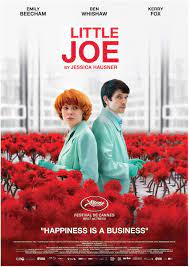
LITTLE JOE
UK, 2019, 104 minutes, Colour.
Emily Beecham, Ben Wishaw, Kerry Fox, Kit Connor, David Wilmot, Phenix Brossard, Sebastian Hulk, Lindsay Duncan.
Directed by Jessica Hausner.
Little Joe sounds like an endearing title. It aso seems like an innocuous title. But, again, it is congenial. One of the central characters of the film is a young boy, Joe, but he is not the Little Joe of the title!
This reviewer came to the film without any previous knowledge at all. The narrative opened in unexpected ways and continued in that vein. So, for audiences who prefer to watch a film without any preparation, it is best to stop reading this review here. The review presupposes that readers are interested in knowing something of what the film is about and how it handles its themes. So, spoiler alert.
This is a film about genetic engineering. However, the main task at hand, in a vast greenhouse with elaborate laboratories, all bright and white, nothing overtly sinister, is focused on the cultivation of special flowers – and each flower is a Little Joe. As the film progresses, with the ambitions of the scientists to produce a flower with aroma that will lead to pleasant feelings, it emerges that the genetic engineering actually does have human intentions, human targets.
Emily Beecham is one of the chief scientists, committed very much to the development of Little Joe, the audience seeing vast rows of the scarlet-coloured flower developing, blossoming, producing its pollen, its scent. She is Alice, separated from her husband (who suffers from allergies), mother of the young Joe (a credible Kit Connor,) mother and son bond, son begins to change in his attitude, wanting to spend time with his father, spending time with Selma, a young fellow-student, things at home seeming more and more on edge. Or is it Alice who is more and more on edge – especially as she goes to discuss her problems with therapist, Lindsay Duncan?
Most of the action takes place at home or on the greenhouse/laboratory site (though there is a relief excursion as Joe goes fishing with his father).
Generally, the scientists are cheery enough people, feeling under pressure to produce the flowers in time for a fair which will bring both prestige and sales. Alice’s co-worker, Chris (Ben Wishaw) is earnest, attracted to Alice, friendly with Joe. On the other hand, there is a veteran scientist, Bella (Kerry Fox), long working at the greenhouse, having time off for mental problems, disturbed when her dog seems to turn against her, then her voicing suspicions about the malevolent effects of the pollen of Little Joe…
Perhaps film analysts discussing Little Joe will be comparing it to the versions of The Invasion of the Body Snatchers. The story is in that vein – but more complicated because of the audience wondering whether we are looking objectively at the story and the characters or whether we have been transported into the wary and disturbed mind of Alice. A very significant clue is given in the last few seconds of the film and it would be a pity to miss this or overlook it.
Science. Science-fiction. Not what we might have expected.
- The title? Alice’s son? The flowers and their cultivation? Their effect?
- British film, locations, the factory, the interiors, the vast glasshouse, the laboratories? The canteen? The contrast with sequences at home? The interlude of fishing in the countryside?
- The musical score, the use of beats, sound effects, staccato impact?
- The film as Alice’s story, her age and experience, divorce from Ivan (and his being allergic), her care for Joe, beginning teenage, his home life, school life, friends? Her being busy at the laboratory? Her inventiveness, the role of Little Joe, its euphoric effect from its scent? The care for the plants in the greenhouse? Bringing one home for Joe? Her role in the laboratories, her colleagues, the authorities, her working with Chris, the interactions with Bella?
- The development of the flowers, the camera continually looking at them, the fast amount, the row was, their development, watering in nourishment? They’re looking beautiful? The suggestion of sinister?
- Bella, mental issues, long time working, lonely, with her dog, the dog suddenly turning, upset, putting it down? The theories about the effect of the flowers, the pollen, disturbing the brain, the science books and her illustrations about smell and the brain? The reviews with the rest of the staff, their dismissing them?
- Chris, the attraction to Alice, friendship with Joe, wanting to have a drink, the time together, attempting to kiss, Alice and her reactions?
- Bella, the interactions with Rick, his place in the work, his tricking Bella, locking her in? So long with the flowers, inhaling, her escaping through the window? The change of heart? In favour of the flowers?
- The theory about the pollen, taking possession of the brain, affecting it, people not being themselves, to strip desperate to preserve the flowers?
- Joe, is inhaling, his friendship with Selma, bringing her home, the visit to the greenhouse, the cameras, their spending time there? The effect on each of them? Joe and beginnings alienation from his mother, wanting to spend time with his father, his ignoring his mother? Selma and the meals? Chris and his visit, Alice not wanting him to stay for the meal?
- Alice, her pride in her work, her ambitions, creativity, support of the authorities, the visits to her therapist and the discussions, especially about the effect of Little Joe?
- The buildup to the success with the flowers, scientific acknowledgement, financial acknowledgement, the pride of the group?
- The effect on Alice, suspicions, and the question whether the narrative was prudent being presented as realistic – or the audience inside Alice’s mind?
- The final image, Alice talking to Little Joe – and its replying?
Legend of the Underground
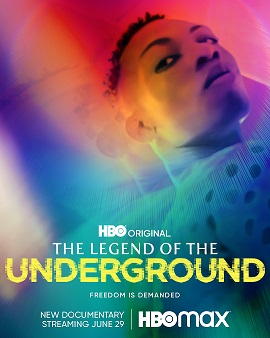
LEGEND OF THE UNDERGROUND
US, 2021, 86 minutes, Colour.
Directed by Giselle Bailey, Nneka Onuorah.
This is an HBO documentary, focusing on social issues in Nigeria and of Nigerians in the United States.
The particular focus is on the LGBTQ in Lagos and other Nigerian cities, political stances, police procedures and brutality, protests.
There is a lot of footage in the underground clubs in Nigeria, drag queens, performance, the clientele. And there are parallels in the sequences in the United States. There are also protest marches.
The main feature of this documentary is the range of talking heads, those in Nigeria talking about their experiences, political and police operation, their defiant stances. And, this is true of the talking heads in the United States, those who have fled from Nigeria, very much involved in political and social movements.
The importance of the documentary is the Nigerian contribution – otherwise, the style of filmmaking is very familiar from other documentaries and television series.
Rosa's Wedding/ La Boda di Rosa
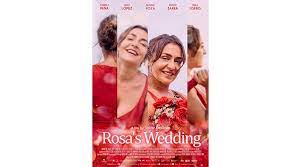
ROSA’S WEDDING/ LA BODA DE ROSA
Spain, 2020, 97 minutes, Colour.
Candela Peña, Sergi Lopez, Nathalie Posa, Paula Usero, Ramon Barea.
Directed by Iciar Bollain.
Rosa (Candela Pena) is seen running in a marathon through the city of Valencia, urged on by all and sundry, everybody seeming to know her and encouraging her – running until she collapses out in an open field. Real? A dream? In fact, Rosa is 45 years old, no husband, a daughter with twins, a successful and skilful dressmaker, with this prospect for the rest of her life.
At this stage, to test how one might enjoy the rest of the film, the audience should ask itself the question: are you the type of person that imposes on everyone else or are you the type of person that everyone else imposes on? Yes, Rosa is completely imposed on, her widowed father, still grieving, but not accepting his wife’s death wants to move in with her. Her brother, Armando (veteran Sergi Lopez) runs a school but it is not successful, especially in money matters, has clashed with his wife who wants to divorce him. He is always phoning Rosa to come and put his children to bed. Her sister, Violeta (Nathalie Poza), speaking three languages, is employed as a translator at conferences has a drinking problem. And, she worries about her daughter, Lydia, who has moved to Manchester, has given up her job. At work, there are continually extra work to be done, cloth to be chosen, alterations to dresses, last-minute emergencies…
Rosa visits the shop her mother ran, dressmaking, in the seaside town of Bencassim. And here she makes a decision, to reopen the shop, to make a new start.
For the rest of the film, the audience, in light of the initial answers to the question posed, will identify with Armando and Violeta, with Lydia and her frustrations, and decide, like them, that they have been far too demanding on Rosa, not acknowledging that she needs a life of her own. For those who identify with Rosa, empathising, possibly quite wearily, with how people make their demands on her, will appreciate that Rosa thinks it’s about time. She has to do something for herself.
She has made wedding dresses and the idea comes for a wedding. But the key is, as the trailer and the advertisements eagerly point out, she wants to marry herself. She wants a quiet ritual on the beach, an opportunity to commit herself to herself and to a constructive future.
Of course, it all gets out of hand. Armando wants to take over and organises the town hall, a band, a banquet. Her father invites all the cousins from Pamplona. Violeta, fired from her job because of her drinking, actually has a fine change of heart, listening to Rosa, discussing with her, realising how they have taken advantage of Rosa. And, her daughter, initially surprised, is also a means of reconciliation.
This is Spain. This is the land of colour and music. This is a land of exuberance. And, so, we might expect that there will be a wedding ceremony, on the sunny beach, and Rosa making a strong declaration about how she will be in the future, not neglecting her relatives and friends and her friend, Rafa, who is astonished at the news that she might be marrying another man. Rosa will help others, be an enabler, but she will be herself.
Individualism – not selfishly, but creatively.
- The? Expectations? A film from Valencia and the Mediterranean coast? Hard work, humdrum lives, but exuberance?
- The opening, Rosa and the marathon on, everybody cheering her on, her perseverance? Running on to the desert field? Dream? Reality? The reality of her life, at the factory, sewing, choosing cloth, alterations, the many demands? The background of her mother’s work and shop?
- The city of Valencia, the streets, homes, factories? The coast, the town, the surroundings? The musical score?
- Roses story, 45, no husband, her daughter with twins, anxious about her daughters career and job, her giving it up? Living in Manchester? Rosa and the impositions from her family, her brother asking her to go to his house to feed the children and put them to bed? Her sister and her busy professional life and translations? Her father, but coming to terms with his wife’s death, two years, wanting to move in, Rosa not wanting this, his having to go for tests at the hospital? The advice about his grief?
- Rosa, talking with her family, talking with her friend Laura on Zoom, RAFA as a boyfriend?
- Rosa, finally exasperated, the fuss with the dresses in the models, giving up her job? Going to the town, the old shop, wanting to restore it? Armando and his plans to sell the shop to finance his school? Violeta and her ownership? The discussions about finance?
- Roses decision to have the wedding, to marry herself? The plan, on the beach, quiet? Armando taking over, ordering the band, the banquet…? The T-shirts?
- Lydia, the scenes with her twins, phoning her mother, not understanding what was going on, the train trip? Eventually meeting her mother, her mother willing to sacrifice herself, Lydia returning to Valencia? Sorting out the issues between mother and daughter?
- Violeta, her translation work, drinking, being fired? Talking with Armando, his awareness of her drinking? The puzzle about the wedding, eventually talking with Rosa, heart-to-heart, sympathy?
- Rosa and the response to Armando’s organisation, hurrying to the town hall, the crowds, from the town, the relations from Pamplona…? Her telling everybody that it would be at the beach?
- At the beach, the crowds, her explanation, that puzzlement? Her explanation of her commitment to herself and to our future?
- The celebration, the band, dancing, Rosa in the red dress?
- A future? Audiences identifying with the put upon Rosa, her age, imposed obligations? Her being free – still helping but being herself?
Classic Horror Story, A
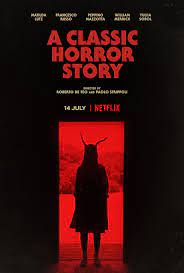
A CLASSIC HORROR STORY
Italy, 2021, 95 minutes, Colour.
Matilda Anna Ingrid Lutz, Francesco Russo, Peppino Mazzotta, Will Merrick, Yuliia Sobol, Alida Baldari Calabria.
Directed by Roberto de Feo, Paolo Strippoli.
In some ways, the title is rather pretentious, that is the setting itself up as something of a classic. On the other hand, it is acknowledging that it is paying homage to and borrowing from classic horror films. And, sometimes, tongue-in-cheek.
Fans who like gory horror films will probably put this on their list, not one of their greatest, but satisfactory. Those who take horror films seriously will probably consider it inferior and failed to notice how it is sending itself up. And for those who enjoy films would send themselves up, there are all the references to other horror films as well is the revelation of how the plot works.
As the film progresses, audiences can be noticing the various conventions from horror films, especially the filming of horror films. And, ultimately, the screenplay seems to owe a great debt to Midsommer, and, some have noticed, The Wicker Man.
There is also a lot of poking fun at whether Italians can make this kind of horror film or not!
A group of people travelling in a van, driven by a film student, Fabrizio, travelling towards Calabria. The passengers include a doctor responsible for deaths and whose wife is rejecting him, Elisa company adviser his mother wants her to have an abortion, and a couple, she from Eastern Europe, he from England, who met in the United States. There is some drinking, the Englishman taking the wheel, a dead animal on the Road, a crash into a tree, everybody coming to far from the main road in a strange country atmosphere.
There are haunted house aspects of the plot, people searching for the Road and going in circles, Knights passing. There is also a mysterious mythology of three nights, sinister costumes hanging on a wall and the discovery of a girl whose tongue has been removed hiding in the costumes.
Which gives rise, of course, to a weird community emerging, explanations of rituals, various members of the travelling group tortured and killed (and first the very of noxious Englishman).
There is a Revelation that Fabrizio comes from the area, is responsible for the crash, is taking the group to the weird community for torture and execution. And, he is filming it, all the time with comments about American and Italian filmmaking and references to different films.
Elisa is taken, her hands nailed to a chair, sat at a banquet of all the strange deputies, the lady mayor explaining the situation to her.
However, with great exertion she is able to lift her hands and the nails, confronted and taught taunt Fabrizio (and the revelation that the seemingly tortured girl is his sister and also a mastermind of the film), is able to deal with the brother and sister, filming Fabrizio’s death.
And, during the final credits, there are all kinds of technical details where one can click like, make comments about how the film went, ending up time in cheek assessment of how this film worked and how it related to other “classics”.
Last Black Man in San Francisco, The
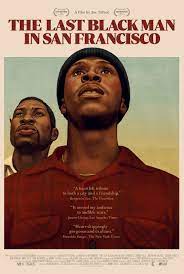
THE LAST BLACK MAN IN SAN FRANCISCO
US, 2019, 121 minutes, Colour.
Jimmie Fails, Jonathan Majors, Rob Morgan, Tichina Arnold, Mike Epps, Thin Wittrock, Danny Glover.
Directed by Joe Talbot.
This is very much a film made for audiences who have a liking for, a love for San Francisco. It is also a film made for African- American audiences, with most of the characters African- American and a focus on social issues.
The film was sponsored by the Sundance Institute and is very much a film geared for Film Festivals, arthouse release, the support of independent films. Which means that it has limited box office appeal, some audiences intrigued by the themes, the characters, the cinematography. Others have declared that they found it very boring and some have left the cinema. It is very much a film geared towards American interests in sensibilities – which may mean that it is “observed” by non-American audiences, rather than enjoyed.
Some have remarked that the film is something like a cinema poem on. There is something of a narrative but it is rather episodic, the film focusing on dialogue, on the visual imagery. And, San Francisco itself, become something of a character in the film, not so much the familiar vistas of the city but rather the streets, the Bay, the naval warehouses, suburbs and all dimensions with elegant interiors, other suburbs and older houses.
The audience is invited to accompany the central character, Jimmie Fails (which is, in fact, the name of the actor portraying him). He takes on jobs, walks the city, is rather morose in his look and manner, teams up with a friend, Mont (Jonathan Majors) who is something of a poet and playwright, always with his notebook for jotting. In a lot of sequences, the camera stays with them as they observe the city, a soap box preacher invading against evil is, sharing a scooter ride around the city.
Jimmie stays with his friend Mont, sleeping on the floor his room, sharing the house with Mont’s grandfather played by Danny Glover. In fact, there are a number of prominent American actors in cameo roles including Mike Epps and Rob Morgan as Jimmie’s father.
Key to the story is a mansion which Jimmie claims was billed by his grandfather in 1946. Jimmie and Mont want to squat there, redecorating the house, Jimmie painting outside schools and being warned off by very angry white woman whom he later encounters. They invite one of their friends to a meal and share the sauna. He belongs to a group that hang out in the street, seemingly idle, seemingly angry, one of them shot.
Commentators note the theme of gentrification of cities. The mention is for sale, Mont makes enquiries of the agent and discovers that the buildings from the 19th century. He writes a play, invites Jimmie and relatives and friends to the performance the combination of which is to inform Jimmie that the house was not built by his grandfather.
This has devastating impact on Jimmie, but he eventually seeks out Mont and reconciles with him, returning to his house. However, he disappears during the night, leaving a note expressing that Mont was his best friend. Mont then retraces areas that they shared together, eventually to the Bay front.
The film is certainly challenging to watch, to resonate with the themes, to empathise with the characters.
Jungle Cruise
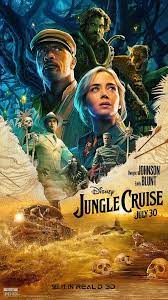
JUNGLE CRUISE
US, 2021, 127 minutes, Colour.
Dwayne Johnson, Emily Blunt, Edgar Ramirez, Jack Whitehall, Jesse Plemons, Paul Giamatti, Veronica Falcon.
Directed by Jaume Collet-Serra.
Cruise is far too sedate a word to have in the title for this very action-action adventure. It opens with conquistadors on the Amazon searching for a flower with healing powers, tangling with the Indians, only to reappear in 1916. 1916 is the year for the setting of this action, the same year that Humphrey Bogart and Katherine Hepburn sailed on The African Queen to thwart the Germans. This time it is Dwayne Johnson and Emily Blunt sailing on the Amazon, Dwayne Johnson being a credible captain-cousin to Humphrey Bogart but Emily Blunt not nearly as ladylike as Katherine Hepburn. Her character, Lily, has no knowledge of ladylike.
40 years ago we were introduced to Indiana Jones and his adventures. 20 years ago there was Lara Croft. Jungle Cruise goes beyond both of these stories and, of course, has lots of 21st-century special effects (with some credit to studios in South Australia and New Zealand amongst others).
And, 1916, sinister Germans, first seen in the scientific academy on Piccadilly Circus, Prince Joachim (with Jesse Plemons talking vis ze sinister accent and proving himself a dastardly villain, pursuing our heroes in a submarine in the Amazon).
Dwayne Johnson is Captain Frank, introduced by taking a group of very Edwardian tourists on the river, providing lots of scares and jokes, Dwayne Johnson proving himself very adept with the screenwriters punchant for play on words (he continues throughout the film and the very last word, in fact, has Emily Blunt, previously not laughing, making a pun herself!).
There is something for everyone in this adventure. Plenty of action. Plenty of climaxes. Some literal cliffhangers. And scarcely a pause for breath. And it is romantic, but not in any sloppy way! Jack Whitehall deserves a special mention as Lily’s brother, very uppercrust (with Oscar Wilde issues), but gradually getting into the swing of things, literally, becoming very much part of the action.
The inspiration for this film comes from one of the Disney World rides. One would imagine that with the success of Jungle Cruise on screen, there will be additions and improvements for visitors to Disneyland.
- A large-scale action adventure entertainment? Based on the Disneyland ride?
- 1916, World War I, British patriotism, German infiltration, action in Brazil, the legends, the expedition, the dangers, confrontations, achievement?
- A Hawaiian locations, atmosphere for the cap and was on, the river, the banks, the forests? The local tribes? The conquest did or ghosts? Stunts and action? Special effects? The musical score?
- The introduction to the Brazilian legend, the flower, remote, the moon, the local Indians? The conquest of doors, the search, Aguirre and his sick daughter, the quest, the other men, the fights, disaster, their being frozen in time? Francisco and his role in their downfall?
- Billy, her father and his research, a woman not accepted by Academy, McGregor giving the speech, the rejections? Lily, behind-the-scenes, the intrusion into the office, the relics, getting the key, leaving the Mac or? Prince Joe come and his contacts, plans, the professor revealing his name, killing all the witnesses? The pursuit of Lily, her fighting back, over Piccadilly Circus, McGregor and the bus, saved? Indiana Jones tone? Academic? Adventure? Lara Croft?
- The introduction to Frank, on the boat, the prim and proper tourists, his practical jokes, cracking the puns, the local Indians and their performance, the old boat, money and tips, Nico and his wanting his money, Frank and the engine for the boat? Nico owning all the boats, the clashes with Franco? In the bar?
- Lily and McGregor, the train, the port, her search for a boat, going to Nico’s office, encountering Frank, the negotiations, the arguments, the revelation that Frank was not Nico? Doing the deal? The presence of the Germans, pursuing Lily?
- The initial adventures with the boat, Lily and her being captured, escaping from the cage? McGregor, all his suitcases, prim and prissy, Frank throwing them overboard? Difficulties with the engine? Setting sail, Frank and his rules? Prince Joe come, the pursuit, the submarine and his henchman?
- Billy, stubborn English woman, wearing trousers, the nickname Pants? The clashes with Frank? The battle of the sexes? The expedition, Lily and her determination, Frank and his knowledge of the River, the decision to follow the right stream, the rapids and the dangers?
- The local Indians, the masks, ceremonial, taking everyone capture, the poisoned darts? The rituals, the revelation of the truth? Trader Sam and being in charge, friendship with Lily, advice?
- The attack of the conquistadors, Frank’s revelation about himself, his cabin, Lily searching, the maps, his being the cartographer?
- The prince, pursuit, the fights, taking McGregor? McGregor, becoming stronger as the story went on, fisticuffs? But his personal story about his sexual orientation?
- The conquistadors, Aguirre and his henchmen, the conflict with Frank, the tactics in fights?
- The moon, the water sinking, the emerging of the city, the tactics for getting the flower, Lily climbing, the moon sinking, one left? The Prince and his attack? Frank and his performance, Billy shooting him (previously extracting the sword from him)? His being frozen? Lily willing to let the flower touching, his revival?
- The prince, the Germans, his wanting the flower, power, 1000 year Reich? His death – and his German swearing?
- Frank revived, the return to England, McGregor’s speech and spurning the academics? The car, Frank learning to drive – and the final puns?
Gone are the Days
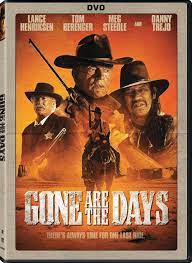
GONE ARE THE DAYS
US, 2018, 99 minutes, Colour.
Lance Henriksen, Tom Berenger, Billy Lush, Meg Steedle, Steve Railsback, Danny Trejo.
Directed by Mark Landre Gould.
Gone are the Days – but with a good old days?
Here is a Western that reminisces about the past, remembering aspects of the past – but especially gunfights and bank robberies – a certain nostalgia and longing those who live through those days.
Lance Henriksen has had a strong career over many decades, generally playing sinister characters. Here is a star role for him in his old age. He plays Taylor and Flynn, seen at the beginning, old, ill, struggling with life, and keeping going by drinking. But, it is time that he took stock of his life – even to remedying something of the past and his regrets.
The film is a story of his journey through the American West, accompanied by his young accomplice, Virgil (Billy Lush). But, is a ghost, living again on all tailings memories? There is an old episode where you encounters a strange character sitting in the desert, the River Man (yet another strange character for Danny Trejo). But his quest is to find his daughter, Heidi, who was working as one of the girls in the saloon. He has never reveal the truth to her. And, in her work, she has a sadistic boss played by Steve Railsback.
Virgil it keeps yearning for robbing a bank, memory of a failed attempt at the past. When Taylor and finds Heidi, he decides to Rob the bank again to get money for her and for her future. However, he has to contend with the sheriff of Durango, Will, played by veteran Tom Berenger. There is something of a showdown, but not in the way we expected, and Taylor on having achieved what he wanted, goes on his way, but falls from his horse, dead. Gone are the Days.
- The title? The old west? The old men in the West, reliving memories, reliving regrets, the possibilities for mending the past?
- The settings, the town, old barns, the countryside, during go, the sheriff’s office, the saloon, the women, memories of old western towns?
- Taylor and, old, ill, drinking, memories of the past? Bank robber, success and failures? Is concerned about Heidi? Virgil, his appearances, accompanying Tale, advice? The beginning of the trek, the encounter with the River Man, sinister, genial, wanting the callings, letting him through? Coming to the town, the women, asking for Heidi, in the room, the bath? Is not revealing the truth to her? The violence, Jaden and his attack, Heidi attacking him, tailored getting away? The memories of the bank robbery, virtual urging him on? His going to the bank, the robbery and the money, meeting up with Heidi? Giving her the money, urging her to the train? The encounter with Will, memories of the past, the confrontation? Jaden wanting to shoot Taylor and, the little girl with the sheriff asking about arresting Taylor on, Will let him go? Taylor on and his collapsing and death?
- Virgil, the past with the bank, Will having killed him, his appearing and reappearing, sharing Taylor on strip, advice?
- The girls, the saloon, the clients? Heidi amongst them? The men going on the posse to search for Taylor on? Will talking to the girls? Explanations about Heidi?
- Heidi, her background, work, with men, with Taylor and, the attack on Jaden? Her wanting to escape, to go to the train, tailored stopping her, the robbery, giving her the money, on the train and reading the note? Her smile?
- The River Man, a character from the old West? Sinister aspects?
- A film of old men, for older audiences, and for those who remember the stories of the American West?

